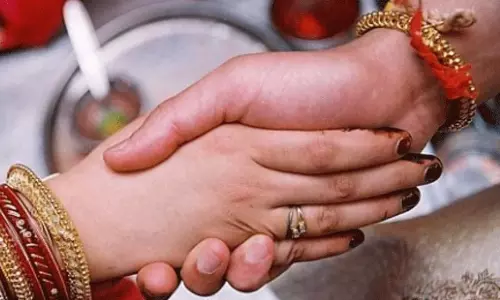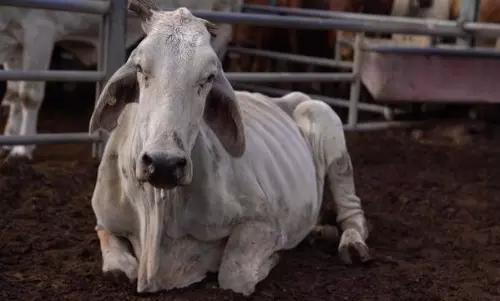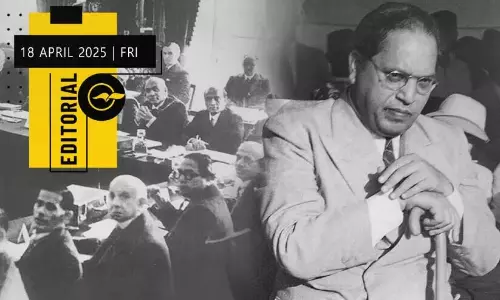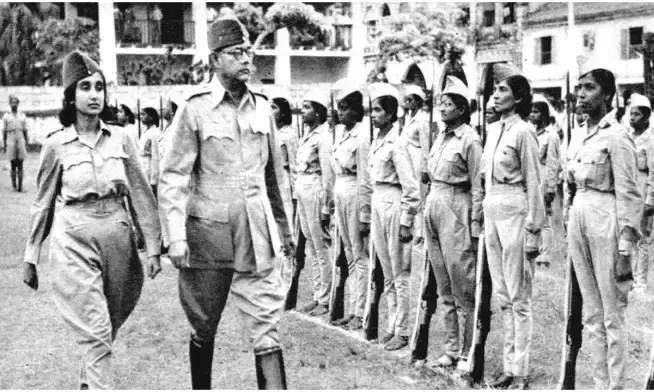
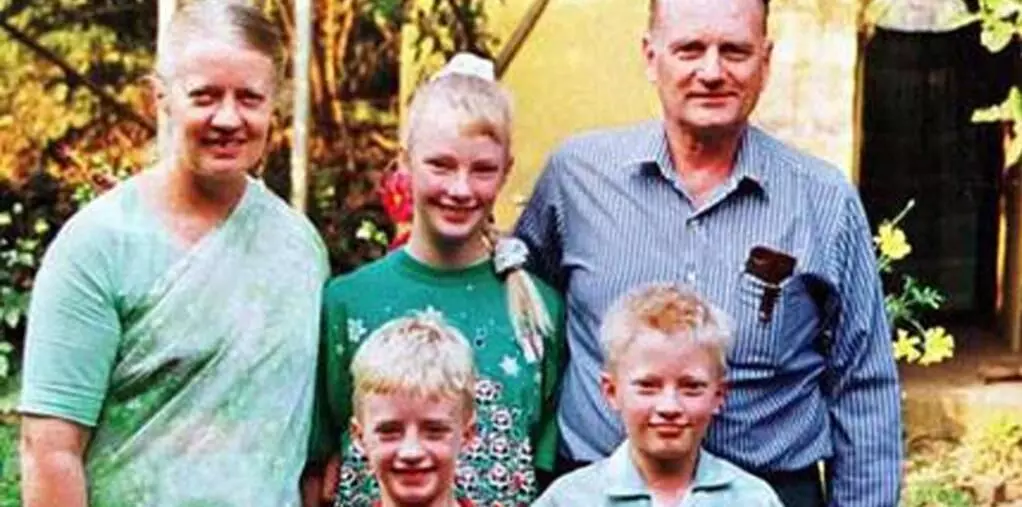
23 years since the ghastly killings of Graham Staines and his sons
text_fieldsOdisha: Exactly 23 years ago, Graham Stuart Staines, an Australian Christian missionary and his sons Philip (10), Timothy (7) were burned to death on January 22-23, 1999 night from Manoharpur village in Keonjhar district by the members of Hindu fundamentalist organisation, Bajrang Dal.
The horrific incident happened when Graham Stuart Staines was on his way to attend a jungle camp in Manoharpur village. The camp which was situated near the tribal villages of Mayurbhanj and Keonjhar in Odisha had discussions on Christian beliefs in social settings. Staines and his two sons were travelling to the place for attending the camp. In between the journey, they decided to take a break and had spent the night in their station wagon in Manoharpur. While sleeping in their vehicle, a violent mob of Bajrang Dal carrying axes and other weapons attacked Staines and his sons. The intolerant mob burned them to death.
After the night of ghastly killings, the nation went numb and speechless. The reason for the cruel murders was said to be the alleged conversion activities done by Staines and his family. According to the right-wing activists, Staines and his family were converting Adivasis to Christianity. However, his widow Gladys had denied the allegations repeatedly.
It was in 1965 when Graham Staines came to India to meet his pen friend in Baripada. After that, he had never returned to Queensland's home in Australia. During his visit to India, he and his wife Gladys started working for poor Adivasi people and leprosy patients in Mayurbhanj Evangelical Missionary Organization in Baripada city of Odisha. Graham who had learned Odia became fluent in Santhali dialect, the language which is prevalent among tribal groups.
Soon after the murders, the then Prime Minister Atal Bihari Vajpayee dispatched a three-membered cabinet team to Manoharpur village in Odisha. He condemned the brutal act and said: "Our heads should hang in shame." The Prime Minister had announced a judicial inquiry headed by a Supreme Court judge.
K R Narayanan, the then Indian President described the murders as "a monumental aberration of time-tested tolerance and harmony. He said that this inhumane killing belonged to the world's inventory of black deeds"
The militant Hindu organisation attached to Vishwa Hindu Parishad and Rashtriya Swayam Sevak Sangh could not get the chance to kill Staine's wife Gladys and daughter, Esther unlike him and their two sons. After their death, Gladys addressed the media and said: "My desire and prayer are that these people who took my husband's life will be touched by that same love so that they will never do this to anyone."As investigations progressed, Dara Singh, a BJP advocate and 49 others were found as convicted in killing Staines and his sons by setting fire to their vehicle. Dara Singh, the main accused was sentenced to death by the CBI court in 2003. Later, the Odisha High Court had commuted his death sentence to life imprisonment and was upheld by the Supreme Court in 2011.
Reports say Dara Singh was treated by a hero like a figure by some Hindus in the village. In an interview, Mahendra Hembram, one among the accused reveals that "Killers were provoked by Christian missionaries' corrupted tribal culture and they claimed that missionaries fed them with beef and have given brasseries and sanitary towels to tribal women."
The aftermath of the case witnessed the passing of the Juvenile Justice Bill in 2000 after a teenager was convicted in Staines and sons' killings.
Later on, in 2019, a movie directed by Aneesh Daniel 'The Least of These: The Graham Staines Story' based on his life was released in India. Stephen Baldwin depicted the life of the Australian missionary on screen.
During the tenure of the murder case, Gladys and her daughter Esther stayed back in India. She worked hard to fulfil the dream project of Staines which is a clinic for lepers. In 2004, Graham Staines Memorial Hospital was inaugurated after Gladys' efforts. She and her daughter moved to Australia after winning a Padma Shri for their social work in 2005.




